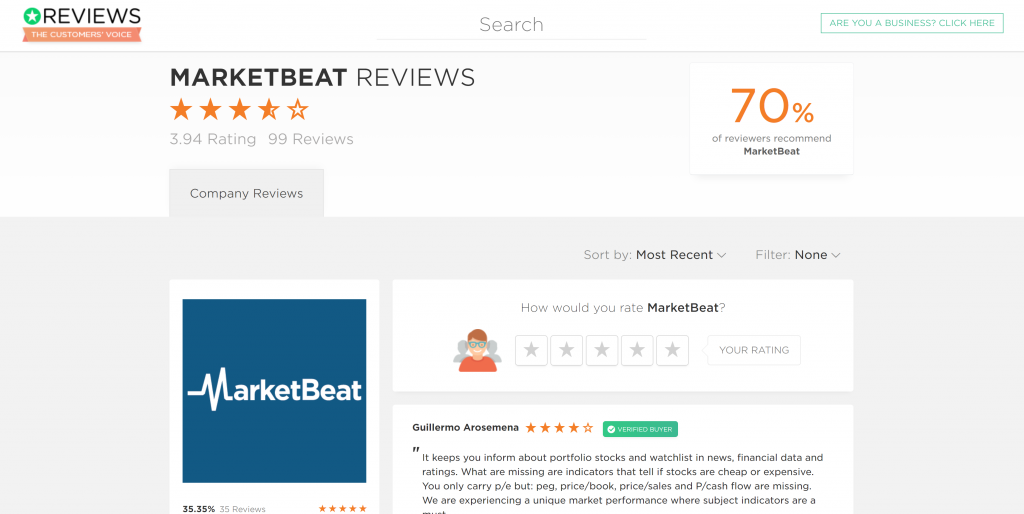Over the last 100 years, marketers have pushed the promises they make to consumers to the limit to generate sales in an increasingly competitive world. They have used sex, action, greed and urgency to capture the increasingly fickle attention of consumers. They have made outrageous claims and guarantees about their products that simply don’t stand up to reality. They bombard potential consumers with brand advertising, targeted email marketing campaigns and digital display retargeting campaigns hoping to capture a customer.
Given the aggressiveness of the modern marketer, it shouldn’t be a surprise that most of us don’t accept the marketing messages we receive at face value anymore. We’ve been lied to by marketers so many times that we look for third-party product reviews, recommendations from friends and family and stamps of approval from trusted sources to determine whether or not we should buy something. We need to hear about the value of a product or service from someone that doesn’t have skin in the game to make a purchasing decision.
If you’re a business owner, you might think these signs of third-party validation are beyond your control. There’s no way to make your consumers recommend your product or service to their friends, but there are some ways that you can generate third-party recommendations and symbols of trust for your business to potential consumers. The two primary ways of doing this are asking your existing customers for reviews and using third-party trust symbols in your marketing campaigns.
Acquiring Trust Symbols for Your Business
 MarketBeat recently became accredited by the Better Business Bureau as part of an effort to generate trust with our potential customers. Most young people don’t rely on the BBB to look up the credibility of a business, but the majority of our customers are fifty years or older. The BBB has a significant amount of trust and goodwill generated with individuals in our target age, because they were the primary source of business reviews prior to the proliferation of the Internet. Their “A+” rating of MarketBeat tells our potential customers that we’re a trustworthy and reputable company to work with.
MarketBeat recently became accredited by the Better Business Bureau as part of an effort to generate trust with our potential customers. Most young people don’t rely on the BBB to look up the credibility of a business, but the majority of our customers are fifty years or older. The BBB has a significant amount of trust and goodwill generated with individuals in our target age, because they were the primary source of business reviews prior to the proliferation of the Internet. Their “A+” rating of MarketBeat tells our potential customers that we’re a trustworthy and reputable company to work with.
We place the BBB’s banner on every page on our website and place it prominently on our sales page and checkout pages to instill trust within our users. We even place their button in the footer of most emails we send out. We also use a couple of other trust symbols on our website, including a SSL banner (indicating the connection to our website is secure) and a banner from another service called Safe Site Certified. When we first added trust symbols to our sales and checkout pages, we saw an immediate 20% jump in sales. By giving consumers a little extra nudge that our company could be trusted, they became significantly more likely to finish the checkout process and complete the sale.
The reality is that these trust symbols don’t mean a whole lot about the quality of the products and services a business offers, since the vetting that these organizations do is somewhat limited. What does matter is that showing a series of trust symbols tells consumers that your company can be trusted and will do right with you if you give them your money.
Generating Third Party Reviews for Your Business
The other way to generate third party validation of your business is to ask your existing customers to leave reviews of you on Google, Facebook and Yelp. We purchased a hot tub from Combined Pool and Spa last year and they sent us a postcard asking us to review their service on Google. This strategy is clearly working for them, given that they have 241 Google reviews and a five-star average rating. Your customers will be very happy to write reviews of your business if they’re satisfied with your work, but you have to actually ask them to do it. Very few people will think to leave a review of your business on Google, Yelp or Facebook by themselves, but many are happy to do it as a favor to you if you ask them nicely.
The key to generating user reviews on an ongoing basis is to systematize the asking process. At MarketBeat, we have an auto-responder message that gets sent out to every customer after they have been with us for thirty days that asks them to review our service on the BBB website and Reviews.IO, a third-party review collection service. If you were to google “MarketBeat Review”, you would find a series of pages with user reviews from our actual customers. We haven’t received five-star ratings across the board, but showing good, bad and neutral ratings adds credibility to the validity of the reviews and gives people a more accurate understanding of what your business can and cannot due.

Some people might think that asking for reviews is just another sleazy marketing technique, but it’s really just giving your customers the opportunity to share their experiences with your company to others. We never tell our customers specifically to give us five-star reviews, but just ask for their honest feedback and opinion about our business. If we do a good job for our customers, we won’t even need to ask them to leave a specific rating.
Instilling Trust in The Digital Era
Given the proliferation of fraud online, you need to do everything you can to instill trust in your potential customers. You need to show that your business is a real company by listing your mailing address, phone number, email address and information about your team on your website. You need to show that you’re a good company to work with by encouraging your existing customers to leave reviews on sites like Google and Facebook. Finally, you need to get recommendations from trusted third parties, like the BBB, to let consumers know that your business is on the up and up. By showing consumers you are trustworthy and will do what you say you’re going to do, you are much more likely to win their business and get the sale.
